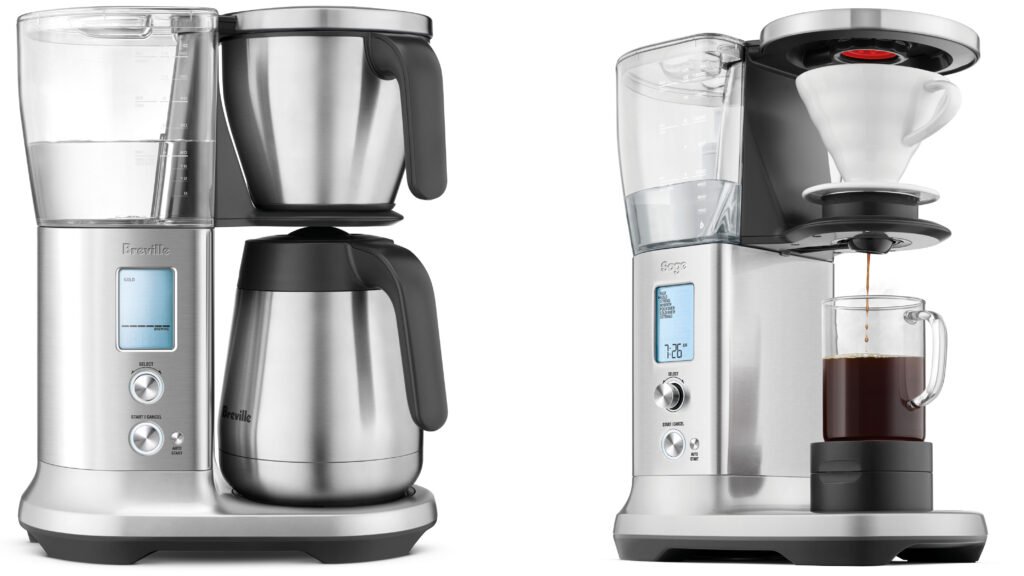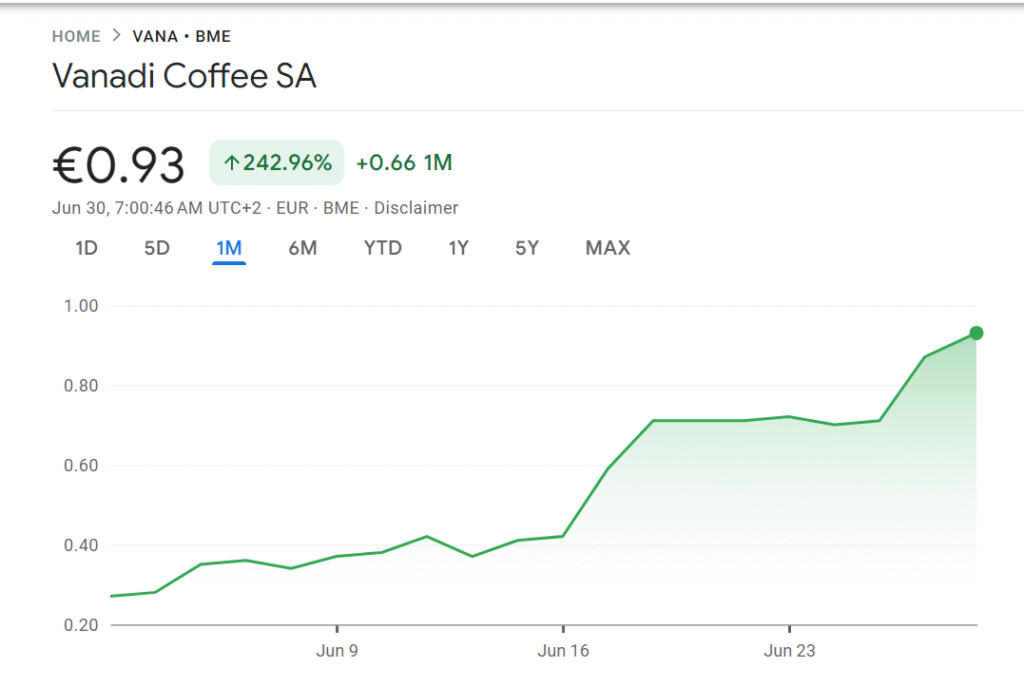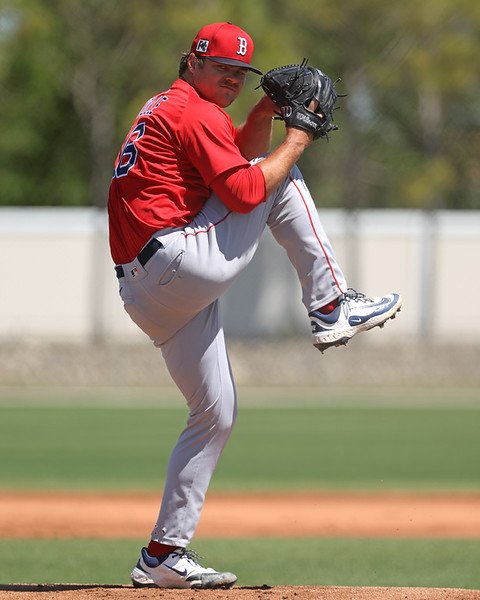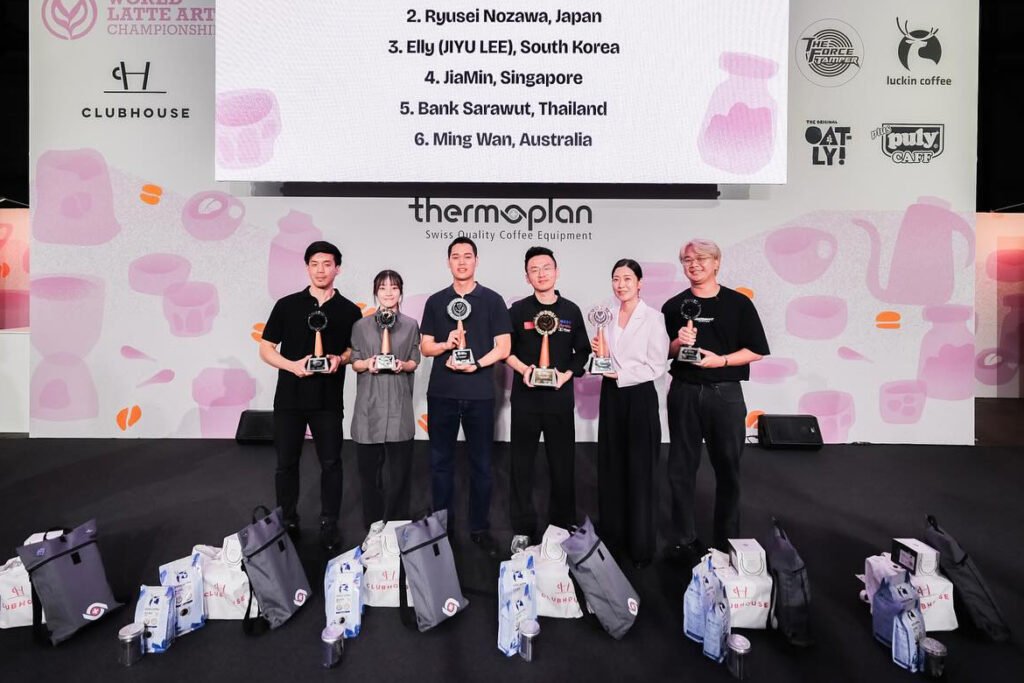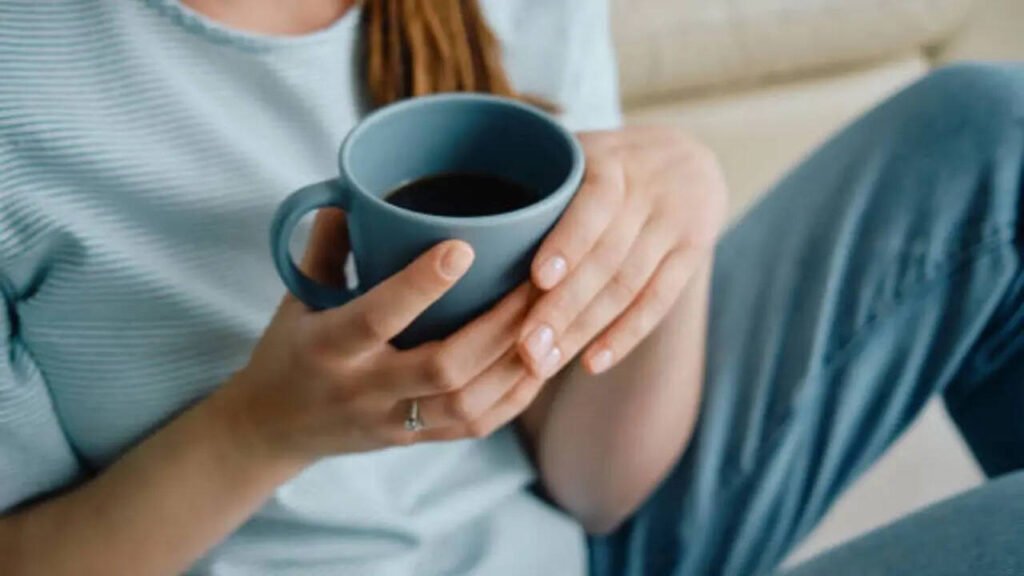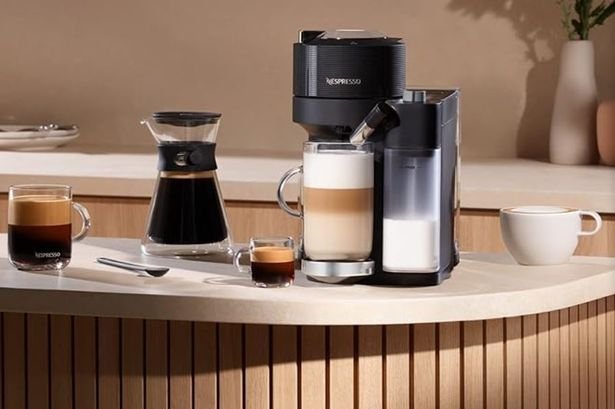

Though new strains of coronavirus are going around, most establishments have lifted mask mandates and aren’t planning to bring them back. Today, we explore how this has been impacting coffee workers.
BY MELINA DEVONEY
BARISTA MAGAZINE ONLINE
Featured photo by Getty Images
Lara* is a server at a busy high-end restaurant in Los Angeles. She continued to wear a face mask at work even after the COVID-19 mask mandates were lifted. However, this month, the owner of the restaurant pulled aside Lara and another employee who still wore a mask to inform them of a new restaurant policy.
“He said a bill was expiring that allowed him to change the policy,” Lara recounts. “His preference was that we don’t wear masks anymore because it will improve sales if people can see our whole faces.”


Lara wonders if the owner is also motivated by maintaining the restaurant aesthetic. “(The new mask policy) could mean that he doesn’t like how it looks when we wear masks, or doesn’t like that it reminds people of health scares, or doesn’t like that it reminds people of a stressful time,” she says.
Frustrated and bewildered about this alleged bill expiration, Lara emailed the restaurant’s general manager. Evidently, Lara wasn’t the only one confused about this new policy. “I got clarification that I need a doctor’s note if I wanted to continue wearing a mask, and that the policy would be effective immediately,” she says. “The manager did say, ‘If you think we’re in violation of any policies or laws or anything, let us know and we’ll reconsider.’”
Management left the consequences of wearing a mask unsaid. Therefore, Lara can only assume that, like the restaurant’s other policies, breaking the no-mask policy warrants a write-up, too many of which lead to termination.
Lara’s co-worker who still wore a mask did so to protect their personal health. However, they couldn’t get a doctor’s note granting an accommodation needed to continue doing so. They told Lara that they feel uncomfortable coming to work maskless now. Additionally, the new policy was not circulated to all restaurant employees.
“The other servers have been shocked and they feel a little bit offended,” Lara says. “It feels a little bit like our rights or our autonomy is kind of being stepped on.”
This messy situation left Lara and her co-workers puzzled about what rights they still have. We’ll examine the current legal landscape, with California as a case study, and how coffee shops can navigate post-COVID-19 regulations.


Health & Safety Regulations for Coffee Shops
The federal Occupational Safety and Health Administration (OSHA) is a regulatory agency of the United States Department of Labor that assures safe and healthy working conditions by setting and enforcing standards.
A Los Angeles management attorney, Gary*, explains that employers across the United States must follow federal OSHA regulations by default—unless they operate in states with their own separate OSHA plans. California sets some stricter laws through Cal/OSHA, the Division of Occupational Safety and Health of the California Department of Industrial Relations.
During the pandemic, Cal/OSHA set a COVID-19 Prevention Emergency Regulation that required masking and other preventative measures that most Americans are well aware of. Similar to federal OSHA COVID-19 prevention regulations, Cal/OSHA’s rules were eventually scaled back to Non-Emergency Regulations.
Notably, these regulations state: “No employer shall prevent any employee from wearing a face covering, including a respirator, when not required by this section, unless it would create a safety hazard.”
This and similar non-emergency regulations have lapsed in most jurisdictions that adopted them, and most states never renewed them.
On February 3, 2025, Cal/OSHA’s COVID-19 Prevention regulations sunsetted, meaning the effective expiration date has passed and the bill has not been renewed. Consequently, there is no longer a specific set of regulatory requirements relating to COVID-19 prevention in the workplace. There is one exception: Record-keeping requirements remain in effect through February 3, 2026, requiring employers to record certain information regarding COVID-19 cases in the workplace.
“It doesn’t mean that employers are off the hook,” Gary says, explaining that it is still incumbent upon California employers to develop processes for addressing COVID-19-related hazards, albeit in a diminished capacity. Instead of following prescriptive COVID-19 rules, employers must follow Cal/OSHA’s Injury and Illness Prevention Program, particularly in identifying and evaluating known workplace hazards and determining which corrective measures are appropriate under the circumstances.
What Baristas Should Know About Post-COVID-19 Workplace Policies: Common Questions & Their Answers
Question: Do baristas have the same paid sick leave?
While no federal law requires paid sick leave for employees, 15 states do, including California.
California’s 2022 COVID-19 Supplemental Paid Sick Leave entitled employees scheduled to work an average of at least 40 hours per week up to 80 hours of leave. That bill expired December 31, 2022. As of January 1, 2024, California law entitled employees at least 40 hours, or five work days, of paid sick leave per year—up from the 24 hours (or three work days) given in the years prior to the pandemic.
Question: Can employers ask baristas to take off their masks?
Regarding an employee’s right to wear a mask, coffee shops are floating in the legal gray area along with most other workplaces. For now, individual businesses can write mask policies into their handbooks, such as part of uniform policies.
Sierra Vierra is a management attorney at Jackson Lewis, primarily focusing on workplace safety proactive guidance, crisis response, and representing businesses during legal proceedings involving workplace safety matters.
“Every jurisdiction is going to be handling this their own way,” Sierra says about masking policies. “In addition to considering whether a mask is needed as a reasonable accommodation under existing federal and state disability discrimination laws, employers should keep an eye on how the governing safety administration (OSHA or a state plan equivalent) and the local legislature are treating mask usage.”
In this limbo, individual employers must figure out how to smoothly transition into new mask policies. Luckily, California is introducing legislation directly addressing this issue.
Laws May Soon Back Up Employees Choosing to Mask Up
Without federal and state OSHA COVID-19 non-emergency regulations, there is a “technical void” in mask laws, Gary explains. However, two bills addressing this void passed in the California State Assembly and are now pending in the California State Senate.
The first, Assembly Bill 596, states, “An employer shall not prevent any employee from wearing a face covering, including a respirator, unless it would create a safety hazard.”
“If there is a workplace where one were to disfavor the use of masks, that would provide a protection for employees that want to wear a mask,” Gary adds.
The second bill, Assembly Bill 1326, gives people the right to wear a face covering in public places, barring specific temporary circumstances.



Strategizing Beyond the Sunsetting of Workplace COVID-19 Regulations
Without the guidance of the sunsetted Cal/OSHA COVID-19 regulations, Californian coffee shop owners and managers are tasked with discerning reasonable strategies for maintaining health and safety of their employees. But at least now we have more experience on that front: “Should there be a future pandemic or any kind of outbreak … there is an existing framework for working with employers on infectious diseases,” Gary explains.
And when it comes to ensuring workplace safety, communication is key: Baristas should feel confident that the woes they commiserate about behind the bar can be brought up to management.
“Fostering a good safety culture where people feel free and encouraged to raise concerns to management—without any fear of retaliation or reprisal—is really important,” Sierra says. “When we stop talking, we create the biggest risk of having misunderstandings and perception problems with our teammates. … If we have a hazard and we haven’t communicated to our team about it, they won’t necessarily know that we’re actually taking steps to fix it and it could create a perception that we don’t care about the hazard.”
“Sometimes the best way to mitigate the hazard is different than what an employee requests, so open channels of communication can help the employee understand that their concern has been heard and is being addressed,” Sierra concludes.
In the legal gray area of the sunsetted COVID-19 regulations, employers especially must clearly communicate workplace policies—and the reasoning behind them. Only then can employers and employees find collaborative solutions that work for everybody. Especially if workplace policy discourages masking, employers must prioritize finding alternative strategies to meet the employee’s needs.
Prioritizing Both Personal Freedom & Collective Health
Lara speaks for many employees when she says that she highly values being seen as an entire person at work—not just an employee or a tool for profit. It’s a non-negotiable for Lara to make her own choices for her health, and to act freely in accordance with her political and social beliefs.
Employers can prove they value employees through thoughtful policies and scheduling strategies. They can prioritize operating in a way that allows employees to protect their health, and that of others, without compromising business and their co-workers’ workloads. This could look like having more flexibility in schedules, by either scheduling “floaters” who are on-call or working as backup on the floor, or putting in place another system that ensures employees can call out sick without causing hardship for the rest of the team.



Lara expresses her hope to continue protecting the health of herself and others without needing permission. “This ‘doctor’s note policy’ assumes that my own health is the only reason that I would want to wear a mask,” Lara says, pointing out that the policy doesn’t consider the fact that employees may be wearing masks to protect others.
“There are people who are disabled and people who are immunocompromised or who have long-COVID that are in our local communities and national communities that rely on everybody else really doing as much work as they can to try to minimize infection,” she explains.
Taking this community care perspective is particularly impactful for employees who work long hours in high-volume establishments. “I’m swapping air with 200 or 300 people every day over the course of four or five hours. So that’s an area in my life where I feel like I can make the most impact in terms of protecting myself and protecting other people,” Lara says.
*Names have been changed to protect the identities of the interviewees
ABOUT THE AUTHOR
Melina Devoney (she/her) is a barista and freelance writer in Los Angeles zeroed in on coffee and agriculture. She aims to amplify the voices of farmers and a diversity of perspectives within the coffee industry, and she’s happiest when running on wooded trails and dancing at concerts.
Subscribe and More!
As always, you can read Barista Magazine in paper by subscribing or ordering an issue.
Read the June + July 2025 Issue for free with our digital edition.
For free access to more than five years’ worth of issues, visit our digital edition archives here.

